Menu
Hybrid, 11 May 2022After two years of economic hardship caused by the COVID-19 pandemic, global energy demand in ASEAN is expected to rebound beyond pre-pandemic levels as economic activity recovers. The post-pandemic period in ASEAN presents opportunities for governments and stakeholders to align energy and climate policy to accelerate the energy transition in ASEAN more effectively. Through ASEAN Climate Change and Energy Project (ACCEPT), one of the flagship projects under the Norway-ASEAN Regional Integration Programme (NARIP), the ASEAN Centre of Energy (ACE) in collaboration with the Norwegian Institute of International Affairs (NUPI) has built a significant body of research and collaborative activities to help inform and enhance coherence between energy and climate policies in ASEAN.
Aligning with ACCEPT’s aim to improve the coherence between the energy-climate nexus in ASEAN, ACCEPT organised the ASEAN-Norway Partnership on Energy and Climate Seminar to build on the existing knowledge and studies conducted to address challenges faced in the transition towards sustainable energy. Co-organised by the Royal Norwegian Embassy in Jakarta, ACE, and NUPI, the hybrid seminar targets Indonesia and other ASEAN decision-makers, the ASEAN and Norwegian energy-related business sector, academics, researchers, and media. Discussions and recommendations from the seminar are expected to contribute to a region-wide interaction on the collaboration to address sustainable energy transition challenges.
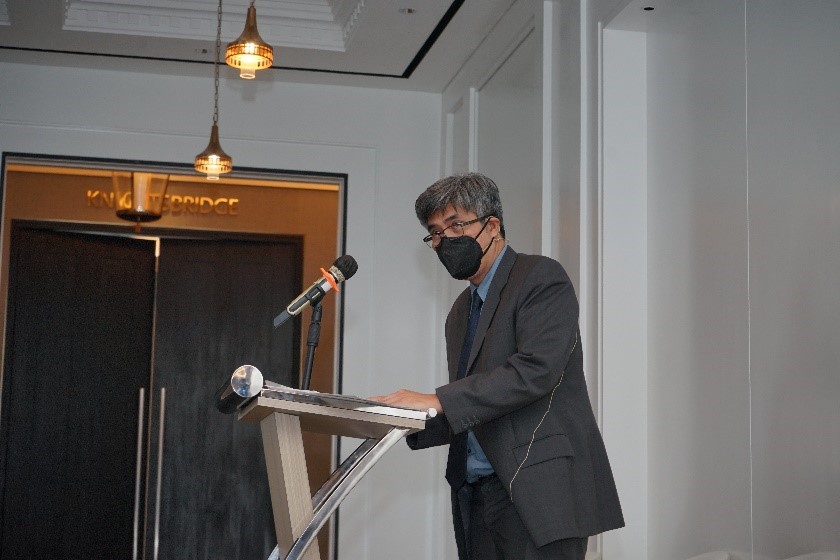
The seminar began with welcoming remarks from ACE’s Executive Director, Dr. Nuki Agya Utama, stating that “Regional and international commitments to tackle climate issues have become more ambitious by the urgent need to address climate change”. Moreover, he emphasised the importance of considering the climate-energy nexus in policy formation to achieve a more climate-friendly development in the energy sector, which has become ACCEPT’s focus since 2018.
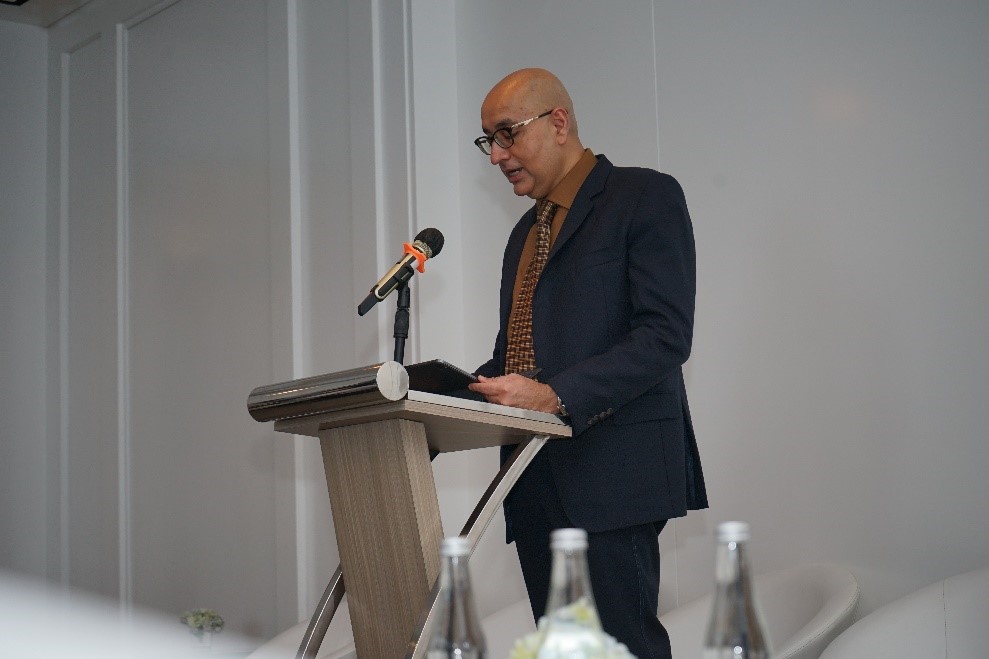
It was followed by a keynote speech delivered by H.E. Satvinder Singh as the Deputy Secretary-General of ASEAN for ASEAN Economic Community at ASEAN Secretariat, elaborating on ASEAN’s plans to build a circular economy and reach carbon neutrality, with the energy sector taking the central role. To quote his statement, “Given the current geopolitical developments, it is more apparent that it is critical for us to balance energy transformation efforts and ensure stability and energy security and at the same time affordability and inclusivity of energy sources for the people”. He also mentioned the three annual priorities for this year for the ASEAN energy fraternity, which includes forming an RE roadmap, Carbon Capture, Utilisation and Storage (CCUS) deployment framework, and energy efficiency and conservation studies.
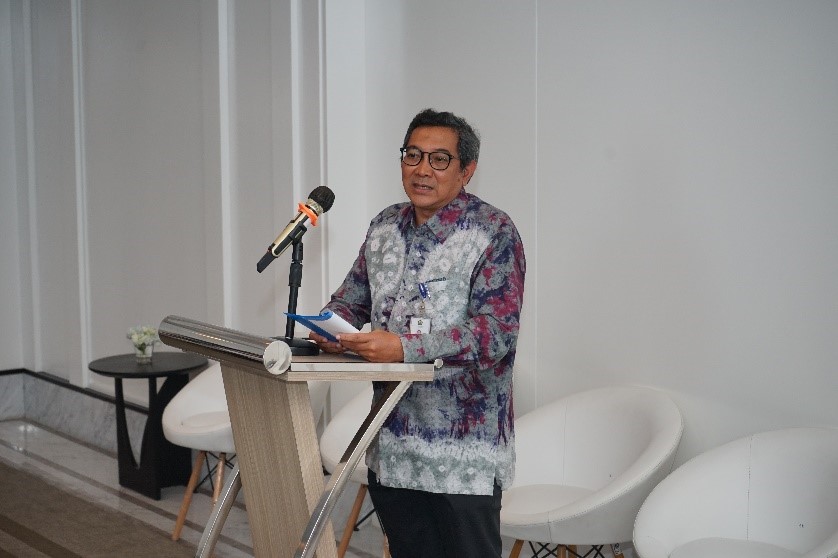
On behalf of H.E. Arifin Tasrif – the Minister of Energy and Mineral Resources of Indonesia – Ir. Yudo Dwinanda Priadi, as an Expert Staff of Strategic Planning at Ministry of Energy and Mineral Resources of Indonesia, highlighted Indonesia’s current efforts to reach a sustainable energy transition, including Coal-fired Power Plant (CFPP) gradual retirement roadmap, greener Rencana Usaha Penyediaan Tenaga Listrik (RUPTL) national electricity program 2021-2030, and fossil fuel usage reduction initiatives. It aims to provide electricity supply sourced mainly from new and renewable energy powerplants such as solar, wind, ocean energy from 2030 onwards. He declared “South-East Asia will remain as the engineer of global economic and growth and centre of gravity of global energy demands”.
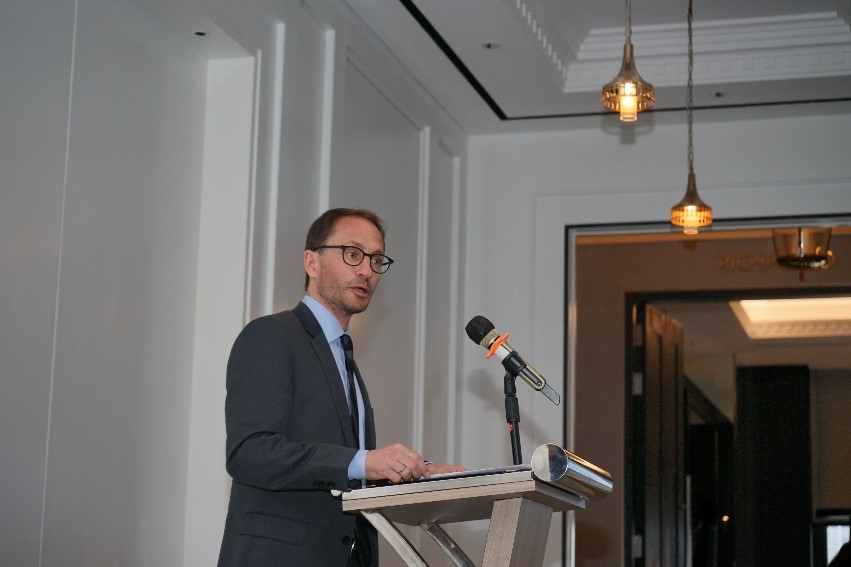
The last keynote speech was delivered by H.E. Henrik Thune, the Deputy Foreign Minister of Norway, reaffirming Norway’s commitment to support the energy transition through several targets. These targets include reducing emissions by 50-55% by 2030 and further reduction to 90-95% by 2050, double climate finance by 2026, and triple adaptation finance. With affirmation, he pointed out that “Energy demand expected to increase in ASEAN and Norway. Poor energy choice means slower economic growth and damage to the ecosystem. A green transition is imperative”.
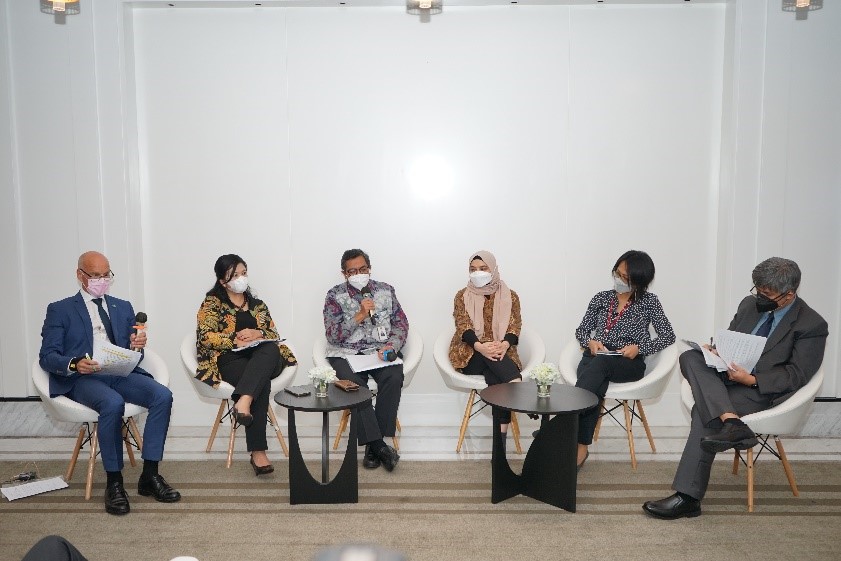
During the panel discussion, there were questions related to policy development measurements, critical challenges and aspects that needed to be addressed for energy transitions.
Marie Gail de Sagon, Assistant Director and Head of Energy and Minerals Division, ASEAN Economic, Community, ASEAN Secretariat, explained the importance of acknowledging the risks and challenges we face during the transition period as everyone has a different starting point before developing measures to address them. Dr. Kamia Handayani, VP Climate Change and Safeguard, PT PLN (Persero), recommended ASEAN countries to capitalise renewable energy resources as soon as humanely possible as the power sectors are still heavily relied on fossil fuels, 40% of coal.
Ir. Yudo Dwinanda Priadi then pointed out that financing will be a key decision factor for policy development as it places development partners to formulate effective roadmaps, frameworks and plans to enable a conducive environment to grow, nurturing intentions. Dr. Filda Citra Yusgiantoro, Chairperson of Purnomo Yusgiantoro Center, introduced the top-to-bottom approaches that can be implemented for policy developments to win the hearts of the local communities and understand their circumstances. To add, Hans Olav Ibrekk, Special Envoy for Climate and Security, Section for Energy, Climate and Food Security, Norwegian Ministry of Foreign Affairs, emphasised the importance of education to equip future generations to be able to handle the technical aspects of energy transition projects.
The final agenda was the summary of the discussion and the way forward. Dr. Indra Øverland, Research Professor, Head of Research Group on Climate and Energy at NUPI, summarised that there is a lot of focus on moving out of the pandemic and the implications for the energy sector in ASEAN. Meanwhile, Norway has shifted to the conflict in Ukraine and the divide between Russia and the West with Russia being the world’s biggest exporter of energy. There has also been a large development in the individual ASEAN Member States and in ASEAN as a region in terms of commitments, discussions, and policy documents on energy transitions as well as the Nationally Determined Contributions (NDCs) under the Paris Agreement. We also heard there will be more coming from ASEAN regarding renewable energy roadmaps, carbon capture utilisation, and an emphasis on energy efficiency. The challenges lie in balancing growing energy needs as ASEAN develops its economy and clean energy.
Going on to phase 2, ACCEPT will work on structured approaches to decarbonisation, including the cooperation of the private sector. Energy subsidies are shown to be problematic in principle. However, it is important to take into account how war affects energy prices and the poor. As different countries have different starting points, whoever takes up the policy and business niche early will benefit early, emphasising the need for ASEAN Member States to implement the actual energy transition. Lastly, the important points needed are finance, technology, concrete projects, supply of competent labour, a bottom-up approach, and a policy framework to facilitate education and investment, as well as to stop building coal power plants.
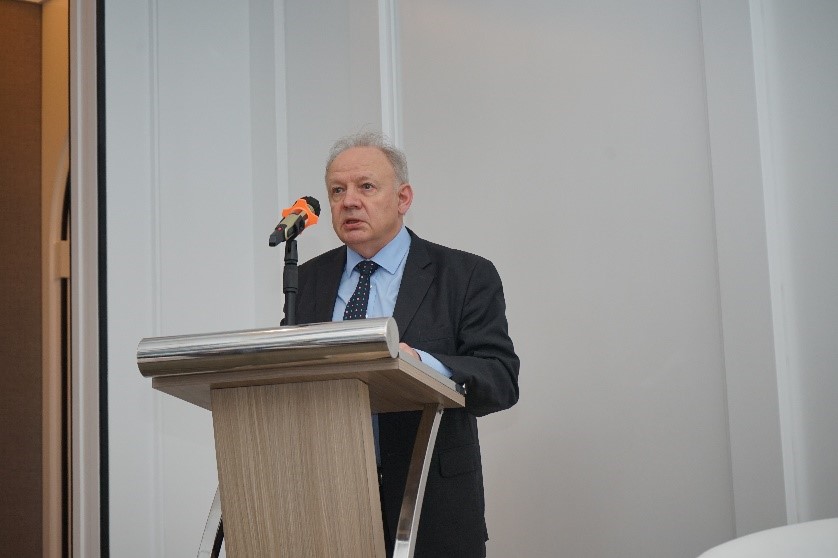
As the closing remarks, H.E. Kjell Tormod Pettersen, the Ambassador of Norway to ASEAN, reaffirmed the importance of identifying and improving the coherence between ASEAN countries and their energy policies as a contribution to a more climate-friendly development of the energy sector. The seminar has provided greater awareness of ASEAN challenges as well as recommendations and opportunities in energy transitions for society to run on renewable energy. Moving forward, there is a lot of work ahead for all of us to charter the course to decarbonise the economy.
The session recording is available here.
(GI, YKC, HA, CV)
